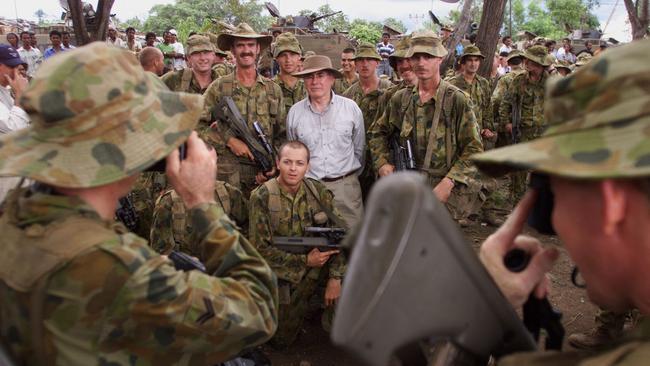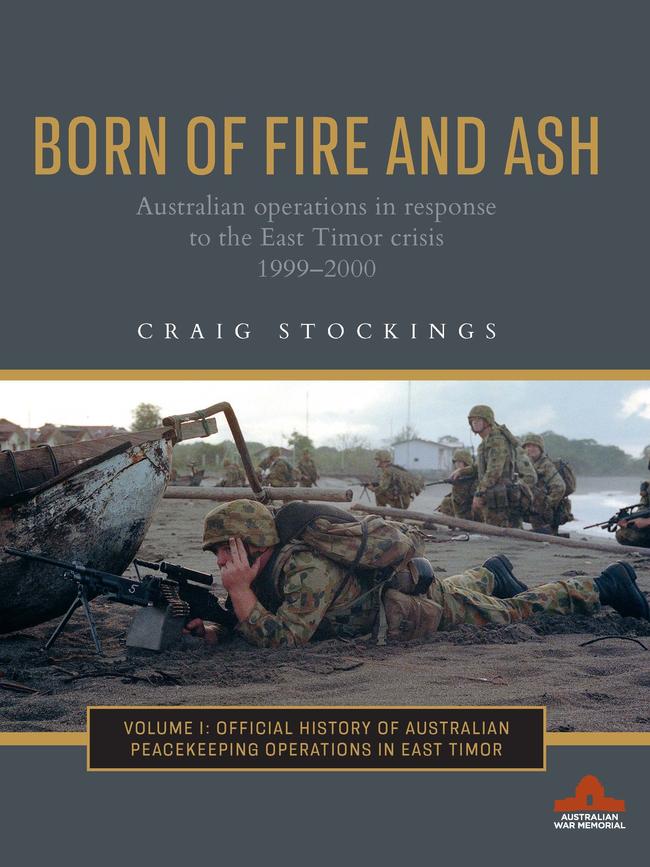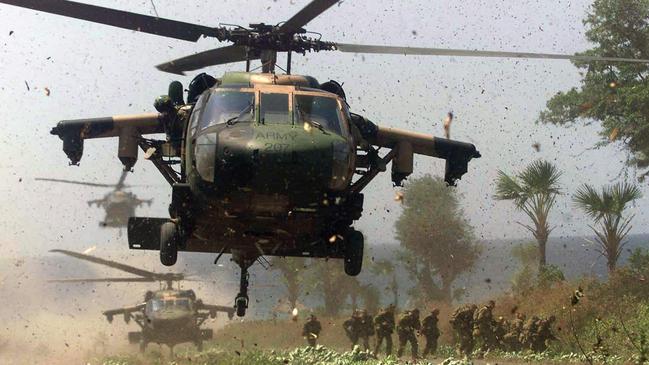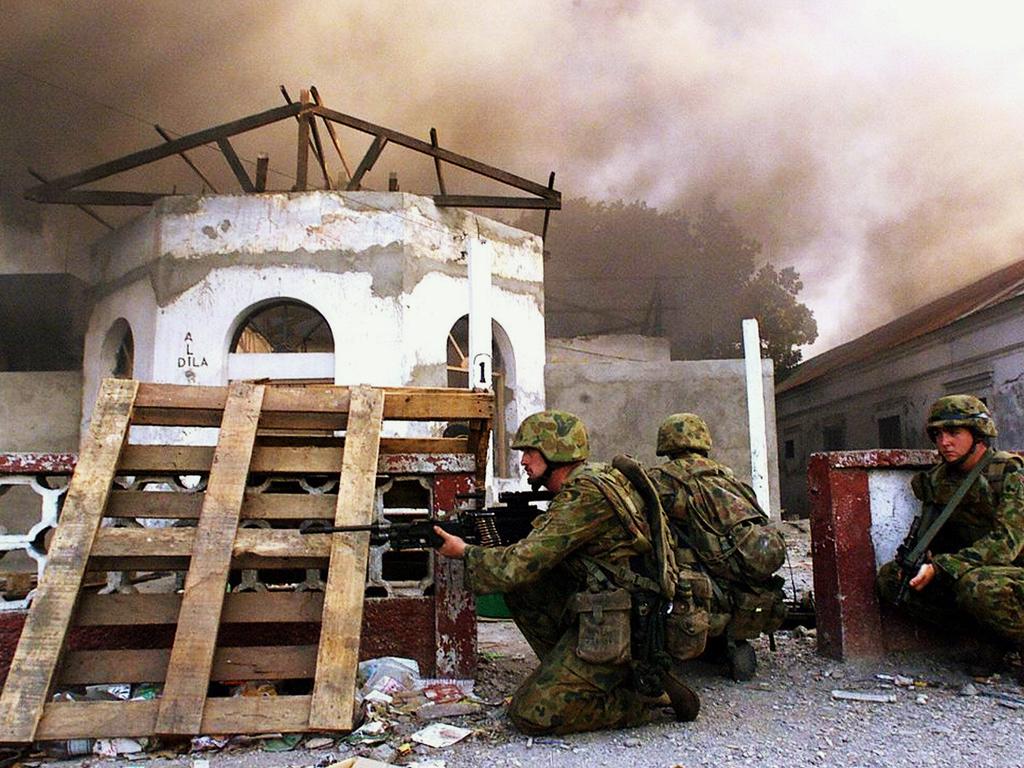Troops for East Timor ‘a step too far’
New book reveals Howard government resisted deploying troops and preferred East Timor remain incorporated into Indonesia.

The official history of Australian operations in East Timor finds the Howard government resisted deploying troops, preferred the province remain incorporated into Indonesia and support for independence was a reluctant reversal of post-war policy consensus.
The first volume dealing with the response to the East Timor crisis in 1999, Born of Fire and Ash by historian Craig Stockings, was published in December after the Department of Foreign Affairs and Trade insisted on so many redactions that it had delayed publication for three years.

The 921-page book, with access to classified records and including hundreds of interviews, has caused so much consternation in government that there has been no official launch and no publicity by ministers or departments. The Australian War Memorial’s promotion of the book has been negligible. And there has been little media coverage.
Professor Stockings told The Australian that the lack of government promotion of this first of six volumes of official history that will also cover Iraq and Afghanistan is “curious” and “not consistent” with past practice.
“A three-year period to clear the volume for publication was extraordinary,” he said.
“We write from classified sources, and it is only proper for our product be cleared for public release. What becomes ambiguous, however, is when real or substantive issues of information security end and where official preferences and reputation management begins.”
The book pushes back against the popular narrative that Australia’s intervention was motivated to “liberate” East Timor, with the former head of international division in the Prime Minister’s Department, Peter Varghese, saying this has been “a post-event rewriting of history” and was never the government’s aim.
“The dominant public narrative of Australian officialdom acting to ‘save’, ‘liberate’ or exercising a ‘duty to protect’ the East Timorese is simply not borne out by historical facts,” Professor Stockings said. “Government policy was the precise opposite, until forced by circumstance and public outcry to reverse its course.”
The official history argues the Australian Defence Force was not adequately prepared and the deployment exposed “shortcomings” in organisation and capability, even though the mission was a success.

These institutional weaknesses were partly a function of “efficiency” cutbacks.
In 1998, John Howard wrote to Indonesian President BJ Habibie offering Australian support for an autonomous East Timor within Indonesia, end encouraged negotiation with East Timorese leaders and consideration of their call for an “act of self-determination”. The president initiated a vote on autonomy or independence the following year.
But the book reveals this letter, drafted by a small group of officials in the Prime Minister’s and Foreign Affairs departments, was not shared with Defence Department officials who were not even aware it had been sent to the Indonesian president.
Professor Stockings writes that Australian policymakers “never sought” an independent East Timor “until the choice was made for them” and during 1999 tried to “shape events” in the province to ensure that “it did not have to deploy a peacekeeping force, or if it did to keep it as small as possible”.
Mr Howard told The Australian that he encouraged Mr Habibie to allow Australian-led peacekeepers in East Timor in the lead-up to and after the historic vote on independence.
“If it is alleged that we opposed the deployment, or were reluctant, that is absurd,” Mr Howard said.
“Once it became apparent after the decisive vote for independence that peacekeepers would be needed, I was determined to provide those peacekeepers. I made it very clear that we would expect to lead the peacekeeping force.”
Professor Stockings stands by the book and says it reflects the historical record of the time supported by hundreds of interviews with politicians, public servants and military figures.
“There will be many who do not agree with our conclusions,” he said.
“Yet we must tell the truth as we find it, and we must go where the evidence leads … We must be able to tell the bad with the good. To fail to do so, to take what might be an easier path, is to betray the 100-year tradition of official history in this country.”
Born of Fire and Ash: Australian Operations in Response to the East Timor Crisis 1999-2000 is published by UNSW Press





To join the conversation, please log in. Don't have an account? Register
Join the conversation, you are commenting as Logout